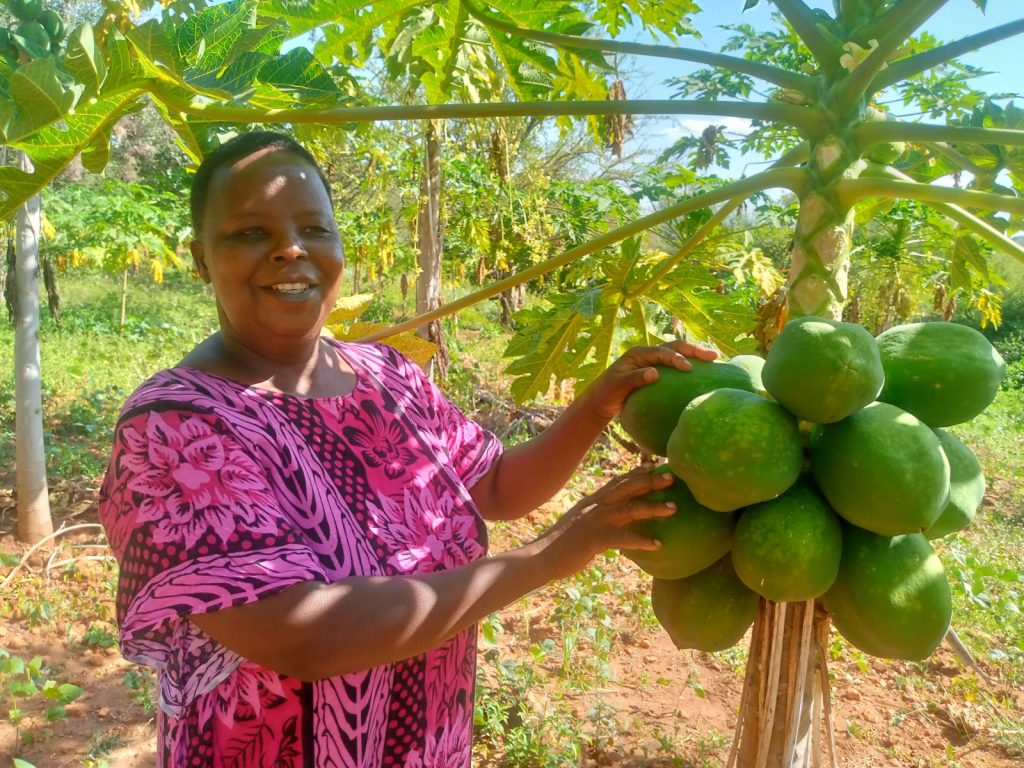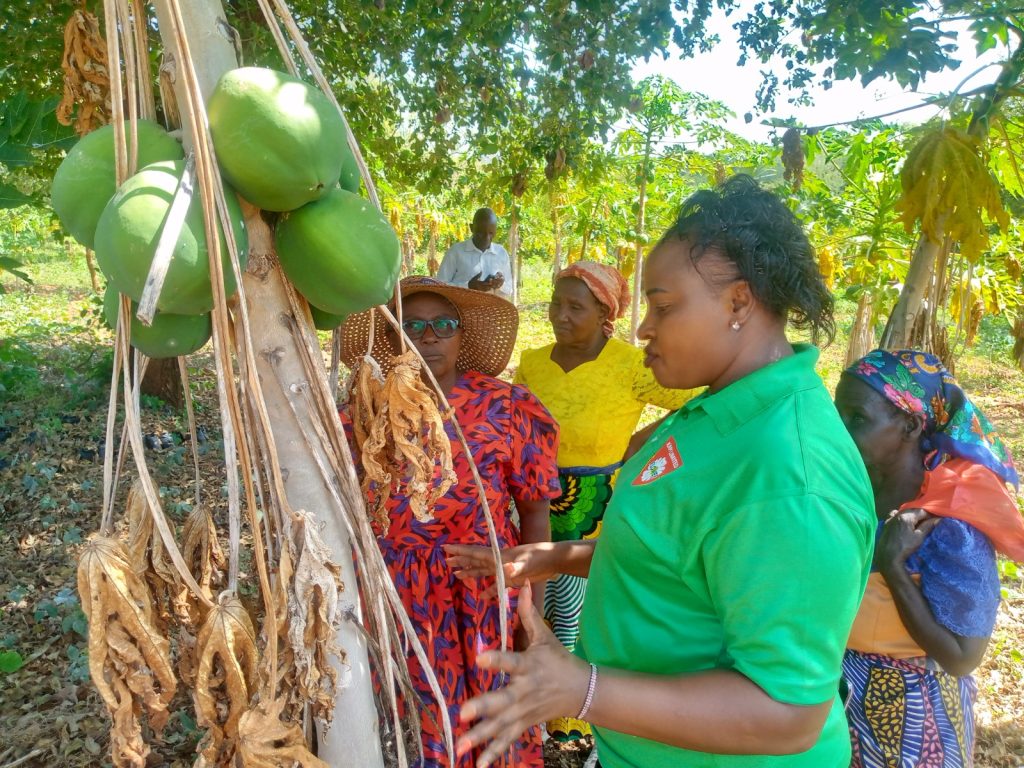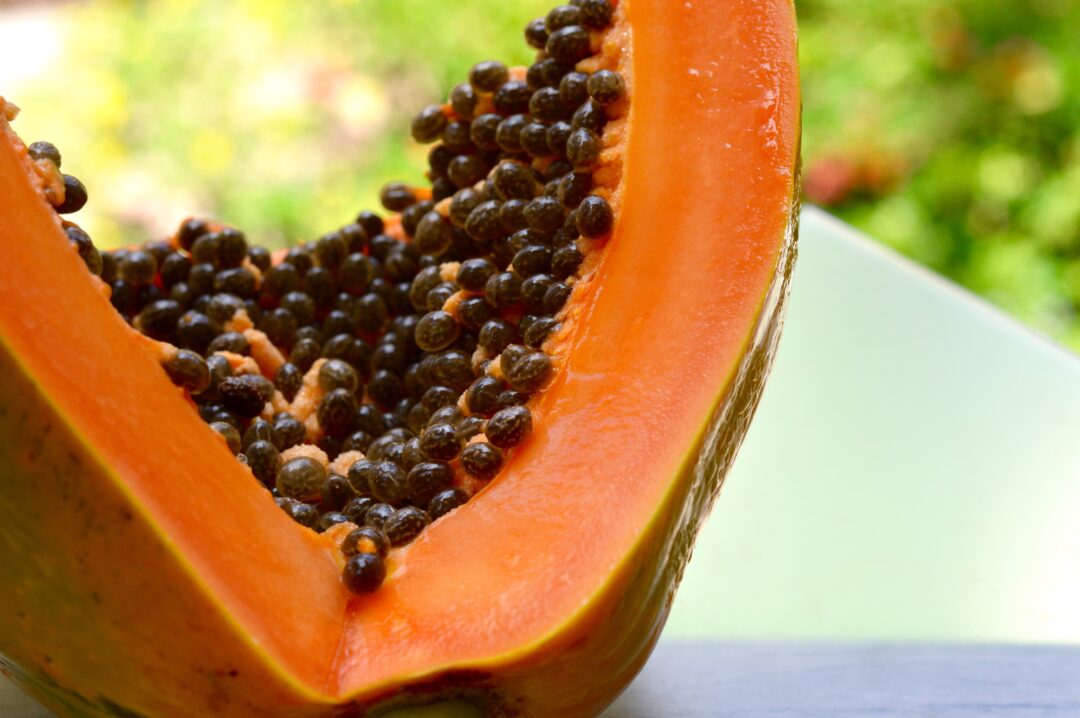BY EDITH NJOKI
Amid the harsh climate and dry conditions of Mbeere South, Penina Mwendia Mbogo has turned her small half-acre farm into a source of fortune through pawpaw farming.
From her home in Kavingori-Iriari village in Mbeere South, Embu County, Mwendia has transformed the dry soils of Mavuria Ward into a flourishing fruit farm alongside her husband, Cyrus Mbogo.
Though they also grow mangoes and other fruits, pawpaw remains her favorite and most profitable crop.
“I love pawpaws because they don’t take much money or time, and they survive with little water,” she says, noting a key benefit in the semi-arid region.
She began growing pawpaws in 2004 and now has over 300 mature trees. Among the varieties she grows are Dwarf, and Solo Sunrise, which she says are high-yielding and require little water.
Her process from seed to fruit is carefully planned. She purchases certified seeds from agro-vets, soaks them in water to trigger germination, and plants them in nursery bags filled with a 1:1 manure-soil mixture. In two weeks, the seedlings are ready for transplanting.
“I dig holes two feet deep and wide, fill them with two kilos of goat or chicken manure, and plant at the onset of rains,” she says. This timing, she adds, helps reduce the need for irrigation if rains are insufficient.
Mwendia has invested in rainwater storage tanks and drilled a borehole—both funded through her pawpaw earnings—to protect her crops during dry spells.
Still, she points out that the lack of proper irrigation infrastructure remains a major challenge in the region.

Despite these hurdles, pawpaw farming has proven rewarding. With good care, each tree can produce for up to five years.
In one season, a tree yields around 20 kilos, with market prices ranging from Sh15 to Sh30 per kilo. For her 300 trees, that translates to at least Sh180,000 per harvest if she sells at Sh30 per kilo.
“We have market because we produce quality fruits,” Mwendia explains. “Use organic practices, survey the market, engage buyers early, and use platforms like Facebook to advertise.”
To support other farmers, she helped form the Mageria Self-Help Group, a network for training, seedling production, and accessing markets.
She often hosts training sessions on her farm, sharing knowledge and encouraging others.
However, pests remain a threat. “Mites nearly destroyed everything,” she recalls. Fortunately, an organic pesticide called Agripest, manufactured by Kapi Company Limited, helped manage the infestation.
Edward Otieno, an agronomist from Kapi, notes that red mites and mealybugs are common pests in pawpaw farming. “Agripest is effective, and farmers can harvest just 24 hours after spraying,” he says.

Eunice Ngatia, Mt. Kenya Regional Manager at Kapi, adds that the pesticide is eco-friendly and safe for both the soil and consumers.
Beyond the farm, Mwendia’s efforts have borne even greater fruit. Proceeds from her pawpaw business have funded her children’s education—one has already graduated from university and another is preparing to join.
“The money is in the soil,” she says, urging others to embrace farming as a viable business.
For those interested in training or buying seedlings, Mwendia can be reached at 0720 351 812.
You have an agribusiness story you’d like us to cover? Reach us via
news@arisemediagroup.co.ke or WhatsApp 0750456085
Book Advert-use above contacts
 732
732


